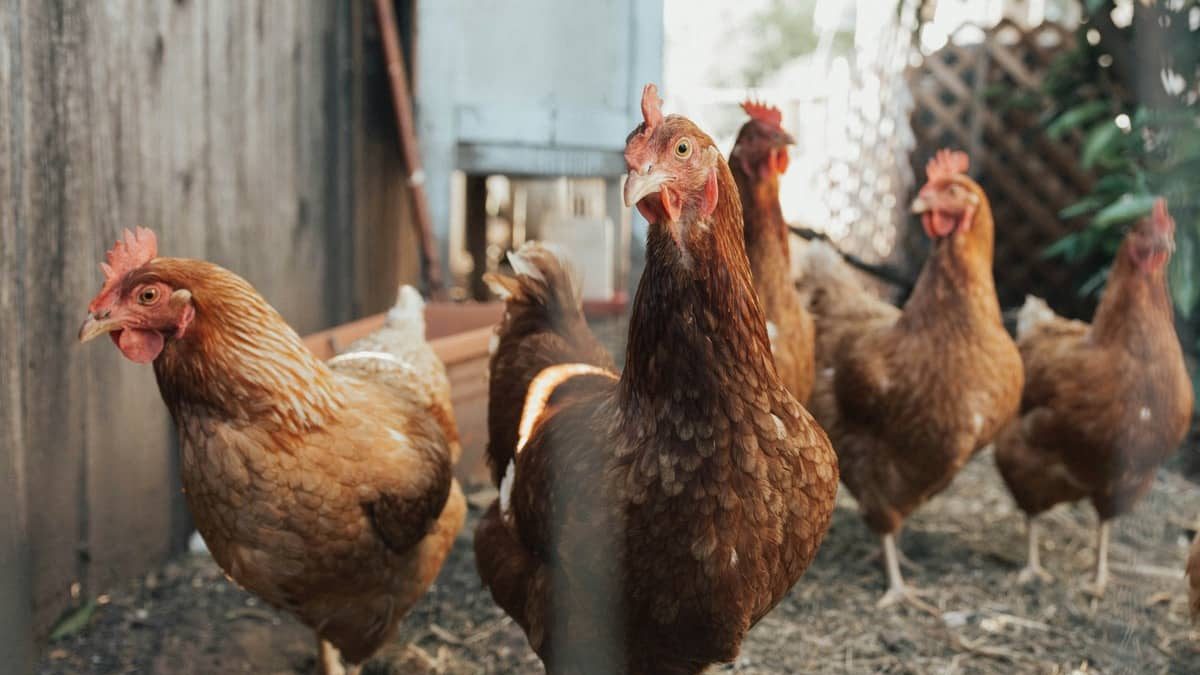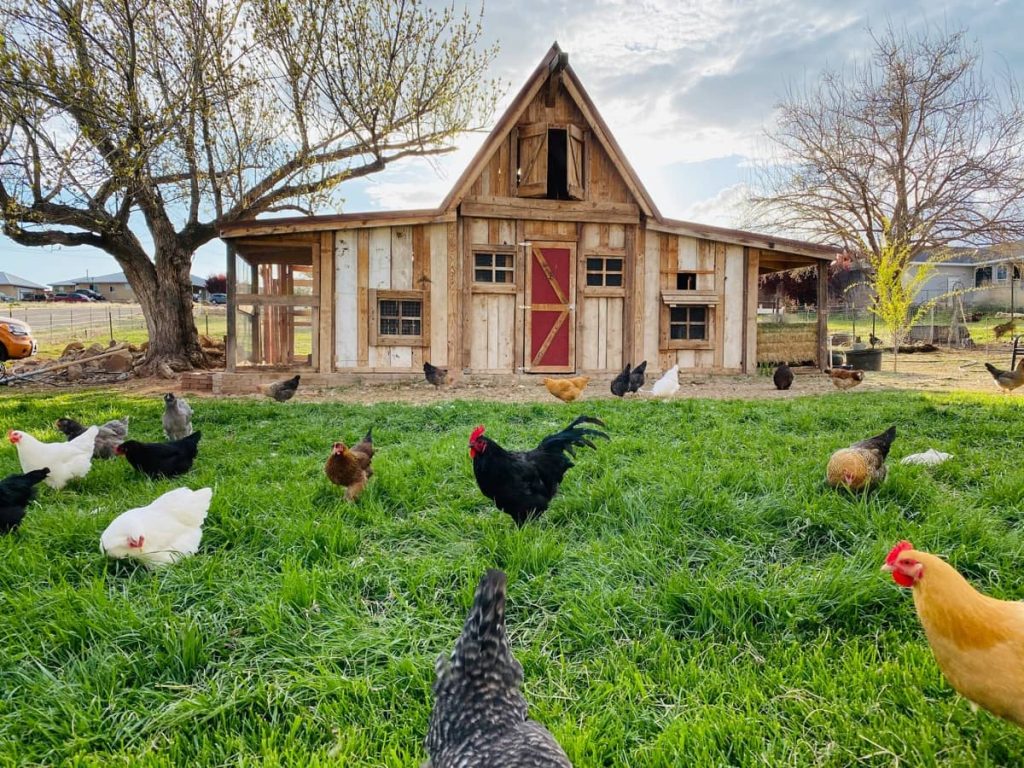
Where Do Chickens Sleep?
For many, the image of chickens is synonymous with scratching around in the dirt. But where do these feathered friends go when the sun sets? Unlike songbirds perched on branches, chickens have a different sleep routine – one that might surprise you.
Where Do Chickens Sleep at Night?
Chickens lack the adaptations for gripping branches, so forget cozy nests in trees. Instead, chickens are roosters – meaning they sleep on elevated perches. In a coop, this perch is called a roost.
- Coop Roost: In backyard coops, a roost is typically a horizontal bar made of wood or PVC pipe. It’s important to provide multiple roosts at varying heights, allowing chickens to choose their preferred spot.
- Natural Roosts: In the wild, chickens will roost on anything elevated and safe, like branches, logs, or even fence posts.
This elevated sleeping position offers several advantages:
- Safety: Predators are less likely to reach chickens roosting high up.
- Social Comfort: Chickens often roost together, creating a sense of security and warmth.
- Clear View: A higher vantage point allows them to stay alert and spot potential threats.

Chicken Sleep Habits: From Dusk Till Dawn
Chickens are diurnal birds, meaning they are most active during the day. As evening approaches, their activity level decreases, and they prepare for bedtime. Here’s a glimpse into a chicken’s sleep cycle:
- Pre-roosting Ritual: As dusk settles, chickens might exhibit pre-roosting behaviors like dust bathing or preening.
- The Climb to Bed: Chickens are surprisingly good climbers! They’ll hop and flutter their way up to their designated roosting spot.
- Settling In: Once on the roost, chickens will find a comfortable position, often perching on one leg with their head tucked under a wing for warmth.
- Light Sleepers: Chickens are relatively light sleepers. They’ll occasionally lift their heads to scan their surroundings, remaining vigilant.
- Early Risers: With the first rays of dawn, chickens become active again. They’ll hop down from the roost, stretch their wings, and greet the day with enthusiastic clucks.
Where Do Wild Chickens Sleep?
While most backyard chickens have a designated coop, wild chickens have to find their own roosting spots. Here’s where they might choose to sleep:
- Trees: While not the most agile climbers, wild chickens can roost on lower branches of trees, especially if there are thick leaves for cover.
- Tall Structures: In some areas, wild chickens might take advantage of human-made structures like abandoned buildings or barns, roosting on rafters or beams.
- Dense Bushes: If other options are unavailable, wild chickens might huddle together in dense bushes or thick vegetation for some level of protection.
Do Chickens Sleep Differently in Winter?
Chickens are fairly cold-hardy birds and can tolerate winter temperatures reasonably well. However, their sleep habits might show some subtle changes:
- Seeking Shelter: During particularly cold or windy nights, chickens might seek out more sheltered roosting spots within the coop, like nesting boxes filled with deep bedding.
- Fluffing Up: Chickens will naturally fluff up their feathers to create a layer of insulation, helping them retain body heat while sleeping.
- Huddling Together: Chickens often huddle close together on the roost at night, sharing body heat for additional warmth.
Interesting Facts About Chicken Sleep
Here are some fun facts about how chickens catch their nightly Zzzs:
- One-Legged Sleepers: Similar to peacocks and cranes, chickens often sleep on one leg. This behavior is thought to help conserve energy and maintain body heat. They’ll switch legs periodically throughout the night.
- Pecking Order at Night: Even on the roost, the pecking order might come into play. Dominant chickens will typically roost in the highest positions.
- Rooster’s Role at Night: While roosters are known for their morning crowing, they also play a role at night. They are often the first to jump onto the roost at dusk, and their alertness can help alert the flock to potential danger.
The Importance of a Good Night’s Sleep for Chickens
Just like humans, chickens need a good night’s sleep to be healthy and productive. A safe and comfortable roosting area allows them to rest properly and recharge for the next day’s activities. In backyard flocks, providing a well-designed coop with appropriate roosting space is crucial for their well-being.



